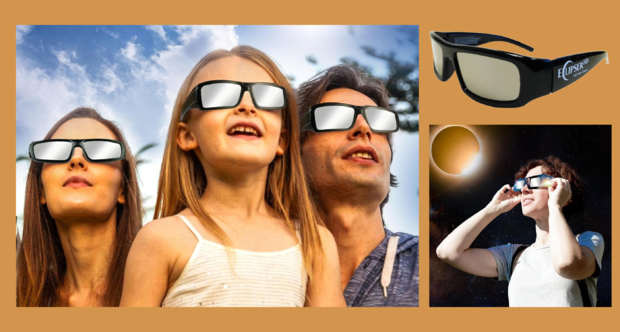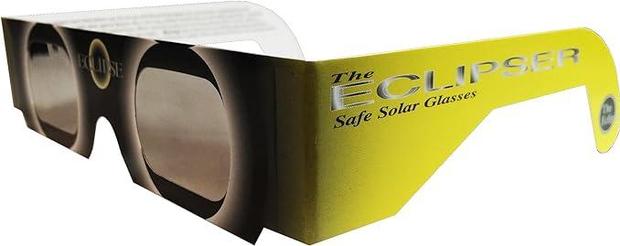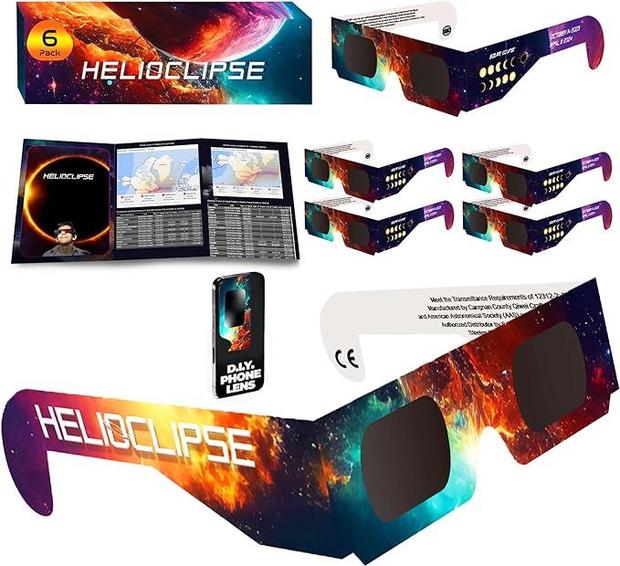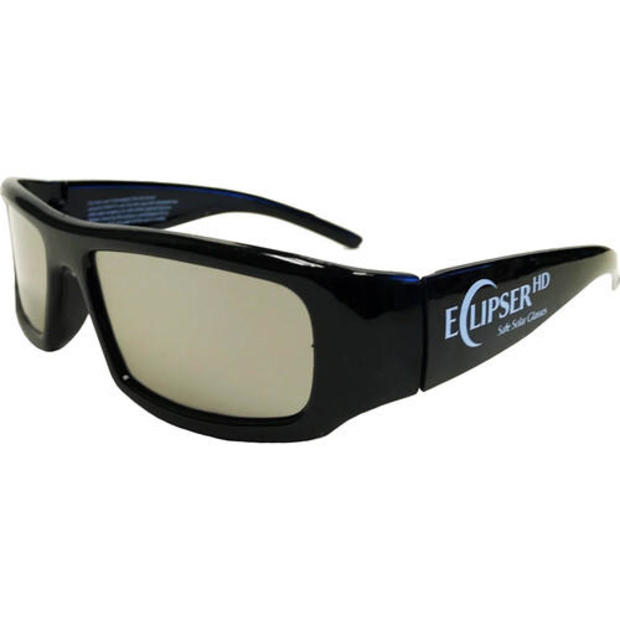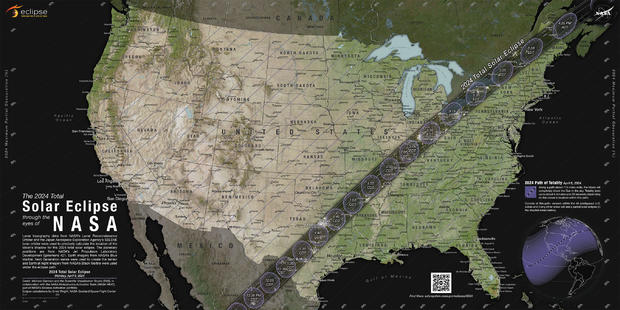How to watch the upcoming total solar eclipse safely: The best eclipse viewers
There will be a total solar eclipse visible across many parts of the United States on April 8, 2024. NASA reports the upcoming eclipse will be visible between Texas and Maine.
If you're planning to gaze upon this once-in-a-lifetime event, you'll need special glasses to avoid permanent eye damage. Regular sunglasses, even those that are polarized and that offer 100% UV protection, are not suitable.
What you need to know about eclipse glasses before you buy
The American Astronomical Society issued important guidelines for choosing the best glasses (also known as eclipse viewers) to wear during the upcoming solar eclipse. Not using the proper eyewear could cause blindness or permanent eye damage.
Proper solar viewers block all but a minuscule fraction of the sun's ultraviolet (UV) and infrared (IR) light, which is what makes them safe to use.
Safety glasses for viewing the eclipse safely
Here are some inexpensive solar eclipse viewer options you can order online. These viewers have been approved by the American Astronomical Society and adhere to the ISO 12312-2 standard, allowing you to view the eclipse safely. Just don't wait to place your order, or they could arrive too late.
For one-time use: American Paper Optics eclipse safety glasses
These eclipse glasses are made with two-millimeter, scratch-resistant black polymer lens material to provide safety when viewing an eclipse. They will allow you to view the sun in its natural orange color while blocking out 100% of harmful ultraviolet rays and infrared, and 99.999% of intense visible light.
Get a three-pack of these American Paper Optics eclipse glasses for $7.
For larger groups: Helioeclipse solar eclipse glasses
The eclipse glasses featured here meet the rigorous safety standards of ISO 12312-2 certification, ensuring they are safe for direct observation of the sun -- including solar eclipse viewing.
These solar eclipse glasses are included on the American Astronomical Society's list of approved brands.
A six-pack of eclipse glasses is currently on sale for 30% off, so you can purchase them on Amazon for just $7.
If you're looking to share the eclipse-viewing experience with a large group, a 25-pack of these glasses is on sale for $24 after coupon.
A premium option: American Paper Optics Eclipser HD solar gllasses
Don't want to wear paper on your head? You can safely enjoy the upcoming solar eclipse with these Eclipser HD Solar Glasses from American Paper Optics. They're made of a scratch-resistant polymer material.
These viewers filter out 100% of harmful ultraviolet and infrared rays and 99.999% of intense visible light, so you can watch the once-in-a-lifetime eclipse without fear of damage to your eyes.
They're ISO and CE certified, with an optical density of five or greater. Find them at B&H Photo for $30.
What to know about the coming total solar eclipse
A total solar eclipse will be happening in the U.S. on April 8, 2024. What time the eclipse will be visible will depend on your location. According to NASA, the solar eclipse will begin in Dallas, TX at 12:23 p.m. local time (CT). It will begin in Caribou, ME at 2:22 p.m. local time (ET).
You can view the path of the total solar eclipse in the map above. Only a narrow band of the U.S. will be able to view the total solar eclipse.
A partial eclipse (the moon will partially block the sun) will happen for approximately two-and-a-half hours. A total solar eclipse (the moon will completely block the sun) will happen for between two and four minutes. Again, these times depend on location. You can view a full eclipse timeline at the NASA website.
Total solar eclipses happen somewhere on Earth once every one to three years, but one that happens in the continental U.S. is rare. According to NASA, the next total solar eclipse visible from the contiguous United States will be in 2044.

